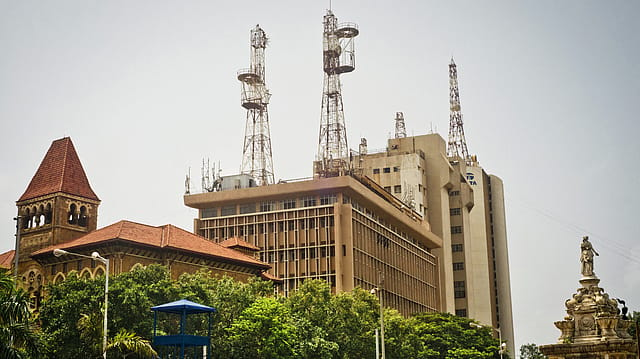SC deals blow to telcos on AGR issue
ADVERTISEMENT

In a major setback to India’s embattled telecom operators, the Supreme Court (SC) on Thursday dismissed the review petitions filed by telcos like Bharti Airtel and Vodafone Idea that sought relief on a massive quantum of dues they need to pay to the government.
As a result, telcos—including Vodafone Idea, Airtel, and Tata Teleservices—would need to collectively fork out close to ₹1 lakh crore by January 23. This amount includes penalty and interest accrued over the last 14 years on the original principal ask.
The relief petition filed by the telcos in November 2019 was in response to an earlier verdict delivered by the apex court in October 2019, which upheld the government’s stand that the adjusted gross revenue (AGR) of mobile service providers should include income from non-core streams such as dividend and interest. Telcos are supposed to pay a certain percentage of this AGR to the government as statutory dues under a revenue-share model.
The dispute is 14 years old, and telcos had never provisioned for this amount to be paid to the government in their books as all the lower courts that heard the matter over the years ruled in favour of the companies.
Not only private sector telcos, but even government companies that hold telecom spectrum auctioned by the government, including GAIL (India), Power Grid Corp. of India and RailTel Corp. of India, need to pay a hefty amount to the government by way of such AGR dues. The demand from GAIL (India) alone is around ₹1.72 lakh crore.
January 2026
Netflix, which has been in India for a decade, has successfully struck a balance between high-class premium content and pricing that attracts a range of customers. Find out how the U.S. streaming giant evolved in India, plus an exclusive interview with CEO Ted Sarandos. Also read about the Best Investments for 2026, and how rising growth and easing inflation will come in handy for finance minister Nirmala Sitharaman as she prepares Budget 2026.
In December 2019, Aditya Birla Group chairman Kumar Mangalam Birla, had said that Vodafone Idea, which is a part of his business house, would have to “shut shop” if they didn’t get any relief from the court or the government. He also remarked that it didn’t make sense to “throw good money after bad”, indicating that the promoters of the company, including the U.K.’s Vodafone Group Plc, weren’t keen to infuse additional capital into the company.
Vodafone Idea is clearly the most impacted by Thursday’s development as its balance sheet is in the most fragile state. Its rival, Bharti Airtel, recently managed to raise around $3 billion from the international market through a mix of equity and debt. It plans to use these funds to make good on its dues on account of AGR, should it finally have to pay this amount.
In a statement issued after the verdict was delivered on Thursday evening, Bharti Airtel said: "While respecting the Supreme Court’s decision, we would like to express our disappointment as we believe the long-standing disputes raised regarding the AGR definition were bona fide and genuine. The industry continues to face severe financial stress and the outcome could further erode the viability of the sector as a whole."
The Sunil Mittal-led telco further stated that the industry needed to continue investing in expanding networks, acquiring spectrum, and introducing new technologies like 5G. "The money now required to pay punitive interest, penalty, and interest on penalty, which forms nearly 75% of AGR dues, would have better served the digital mission of the country. We are evaluating filing a curative petition."
To be sure, the telecom companies can file a curative petition with the Supreme Court to continue with their demand to seek relief from such payment. They may even ask for a flexible schedule to pay these dues in instalments over a longish period of time. The ball is now also in the government’s court, which might need to work with the telecom sector and its participants to ensure that they doesn’t sink.
